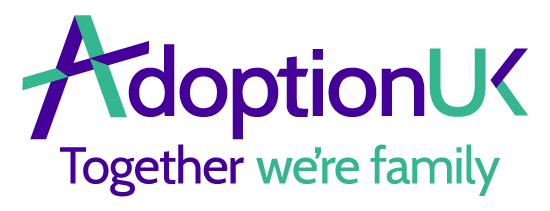Edited 17/02/2021
Impact on younger birth child
- 1
- 2
waterfalls
April 20, 2019 19:49
Hi Rutinha, ADHD is caused by the brain waves in the frontal lobes being too slow. the meds, which are stimulant based, help to speed up those brain waves so that the child is more able to concentrate and control their behaviour. When my ad was dx they did a scan of her frontal lobes brain waves to confirm it (she had one of those hats put on with electrodes attached to it). Also, it takes time to find the right dose of meds as they will start your as of on a small dose but if his behaviour is not due to adhd then the meds will not have any effect. However if it is adhd you will see some improvement straight away which will get better once the right dose is reached. the meds control my ad's hyperactivity, concentration, impulsiveness and defiance. My ad also has ASD and so the meds have no effect on the behaviours associated with it - so even on the meds she will still have meltdowns and defiance. My ad also dislikes changes to her routine, lacks imagination, can get fixated on things, lacks flexibility in thinking, very anxious , lacks empathy and has severe problems with social interactions/friendships, very literal thinking etc. If you google the conditions then you will see a list of the behaviours associated with them. Once our ad started the meds for adhd, and as she got older her asd features became so much more apparent. In my view, given our children's poor start in life and the fact that most of these conditions can be inherited, and so most of our children have poor genes, I think that you might find that your AS has more than one condition as well as trauma/attachment problems. The problem is that all the trauma therapy in the world will not make a difference until the underlying ADHD is dealt with. Just to add, when we see our psychiatrist we and school have to fill in a form which lists all the adhd behaviours together, then the asd features together, anxiety, opposition etc so it is clear to see what conditions you could be looking at. Also have another look at your as's background - is there anything there that may give you a clue as to what your as may have inherited. You might need to look between the lines. My ad's bm was a drug addict and our ad was born addicted to crack cocaine so i always assumed that she would have conditions other than attachment/trauma. However, what i didn't consider at the time was why her bm took drugs - in deed our ad's adhd doctor said that he thought that she probably had undiagnosed adhd which was why she made the life choices that she did. Also although we were told that there was no evidence of bm drinking alcohol to excess, we now know that addicts do tend to drink heavily. In fact the comm paed who dx the ASD said that she thought our ad could possibly have FASD but we have not bothered to get that investigated as we have an EHCP based on her ASD as being her primary need. My ad no doubt does have attachment problems even though she was removed at birth and had just one very good foster carer and we brought her home at 13 months. I don't think that any child can go through being removed from bm and go through the care system and not have attachment problems but it is not the root cause of all of her problems - all her conditions overlap. best wishesxx
chocoholic
April 20, 2019 20:11
Hi Rutinha, Waterfalls has given a great reply here, but I would just echo the thought of keeping FASD in the back of your mind while you explore the other possible diagnoses. My AD was first diagnosed with ADHD, with ASD ruled out (but said she had some autistic traits). However the meds failed to have any effect whatsoever, despite four years of trying different meds and different doses. I think this is because her ADHD behaviours are really part of a much bigger picture - FASD. So keep this in mind as something you may need to explore at some point.
Edited 17/02/2021
safia
April 20, 2019 20:27
That is brilliant advice from Waterfalls. My ADâs difficulties were always thought to be related to her non accidental head injury as a baby and so the GP would not refer for ADHD assessment (nor later would the adult MH services) - we had it done privately in the end and she has severe ADHD. I think itâs quite likely her birth dad has it too - hence the domestic violence and non accidental injury. She also has the effects of her traumas (and the effects of a more recent trauma) as well as attachment difficulties, a social communication disorder, dyslexia, speech and language difficulties and (the latest) a possible personality disorder. The ADHD meds make a huge difference - and help to keep her safe. Donât worry at the moment about trying to separate out what is what - go for the assessment and take it from there. Keep an open mind too about what else there may be - and of course if he has ADHD the meds will make him more able to benefit from any other interventions offered.
Edited 17/02/2021
Rutinha
April 20, 2019 22:49
Thank you SO much for taking the time to write such helpful advice. I will re read and inwardly digest! Yes, there is a birth history of ADHD which is what makes us think that it is probably more likely. Thank you for all your thoughts and the benefit of your experience. I will let you know how we progress once we get the private assessment.
Edited 17/02/2021
- 1
- 2
Archived
This topic is archived. New posts are not allowed.

